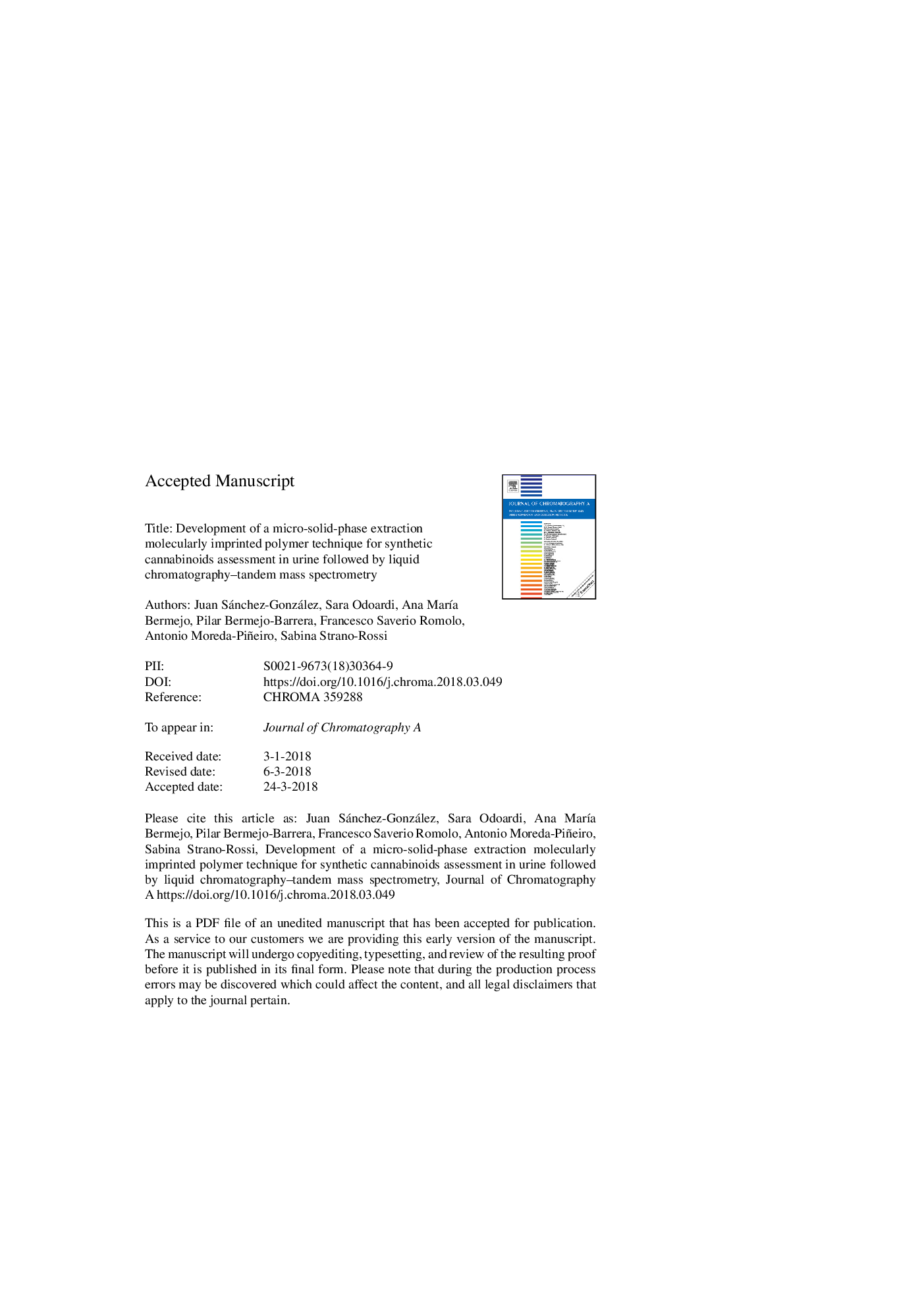| Article ID | Journal | Published Year | Pages | File Type |
|---|---|---|---|---|
| 7608253 | Journal of Chromatography A | 2018 | 48 Pages |
Abstract
Several molecularly imprinted polymers (MIPs) have been synthesized for the first time using various synthetic cannabinoids (JWH007, JWH015 and JWH098) as template molecules. Ethylene dimethacrylate (EDMA) was used as a functional monomer for all cases. Similarly, divinylbenzene (DVB) and 2,2â²-azobisisobutyronitrile (AIBN) were used as cross-linker and initiator, respectively. The prepared MIPs have been fully characterized and evaluated as new selective adsorbents for micro-solid phase extraction (μ-SPE) of synthetic cannabinoids in urine. The developed MIP-μ-SPE devices consisted of a polypropylene (PP) porous membrane containing the adsorbent (novel porous membrane protected micro-solid phase extraction based on a cone-shaped device) for operating in batch mode, which allowed a fast and integrated extraction-cleanup procedure. High performance liquid chromatography-tandem mass spectrometry (HPLC-MS/MS) was used for quantifying the analytes after MIP-μ-SPE. The best performances were obtained for MIPs prepared from JWH015 as a template. Optimum loading conditions were found to be urine pH of 5.0 and adsorption time of 8.0â¯min under mechanical (orbital-horizontal) stirring at 100â¯rpm. The composition of the eluting solution consisted of 75:20:5 heptane/2-propanol/ammonium hydroxide. The elution was assisted by ultrasounds (37â¯kHz, 325â¯W) for 8.0â¯min. In addition, studies regarding selectivity have also been addressed for several drugs of abuse under optimized loading/adsorption conditions. Validation of the method showed good precision and analytical recovery by intra-day and inter-day assays (RSD values lower than 7 and 10% for intra-day and inter-day precision, and within the 83-100% range for intra-day and inter-day analytical recovery).
Related Topics
Physical Sciences and Engineering
Chemistry
Analytical Chemistry
Authors
Juan Sánchez-González, Sara Odoardi, Ana MarÃa Bermejo, Pilar Bermejo-Barrera, Francesco Saverio Romolo, Antonio Moreda-Piñeiro, Sabina Strano-Rossi,
